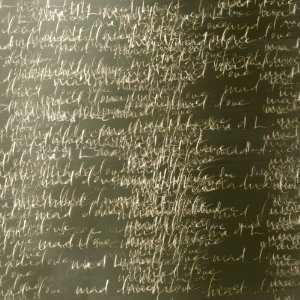The art of just letting things happen, and the lack of pretension that patience engenders, can be a rare thing among musicians. Its opposite, the motivated drive to ‘work hard’ seems to be ever popular (consider Alt-J hailing their work ethic following their Mercury win), as if songwriting were solely a case of knuckling down and putting in the hours and graft, perhaps negating any notion of inspiration and creative chaos.
Cheval Sombre – a New York dweller by the name of Christopher Porpora – has let the songs come to him. Having released a debut in 2009, he appears to have been utterly passive in his journey to Mad Love. And his faith that everything would flow has effortlessly paid off, as he says himself, "It was a miracle of music unfolding – an extraordinary, organic evolution."
Mad Love itself oozes that sort of relaxed approach. It is one of the most unhurried records you will ever hear, even if it does approach morbidity and nihilism at times. Throughout, soft acoustic guitar, organ and strings are made drowsy by a plethora of psychedelic effects, with every song slow in tempo, and perhaps coming across as plodding to the wrong ears. It has been lovingly and carefully put together, and can even offer contributions from Andrew VanWyngarden and Ben Goldwasser of MGMT, Pete Kember of Spacemen 3 and Dean Wareham of Galaxie 500, all of whom appear to make absolutely no difference to anything.
The modern reference points are plentiful and easily identified, from Brightblack Morning Light to Azure Ray to MV & EE, but a truer connection with Mad Love comes when considering that Porpora is looking further back. One of the loveliest songs is ‘Once I Had A Sweetheart’, a well known traditional perhaps made most famous by Pentangle. The Cheval Sombre version is saturated in reverb and is along the lines of what This Mortal Coil did to Tim Buckley’s ‘Song To The Siren’, yet the simplicity of this mesmerising track shines through the haze. The distortion, however, does give it a glittering quality that permeates the whole record, elevating it to something meditative and entrancing, if not quite druggy.
It’s a trick Porpora repeats. A number of his own songs sound as though they could have been re-arranged traditionals, such as ‘She Went Walking In The Rain’, while a more Californian (though in a rather nightmarish way) songwriting touch is revealed on the exceptional ‘February Blues’.
Then there is ‘Couldn’t Do’, an insistent drone that after the ninth minute begins to approach some kind of insanity, something that Wilco might have toyed with circa 2004, were they not such complicated musicians. Porpora is not complicated. While some of these tracks are heavily layered to the point of obscuring the song beneath, their core is something primitive and uncultured.
Porpora was a poet before turning most of his attention to music, yet there is little wordplay or incisive language here (though granted, the ringing delay and echo make discerning Porpora’s words a little tricky). But Mad Love is meant to be direct and accessible in message, as titles such as ‘I Fell In Love’ (probably the album’s most stunning song) and ‘The Nearness of You’.
It will take one listen to grasp the loping feel and defeated sentiments of Mad Love, and a few dozen more to reveal the hidden importance of all the parts, the pacing and changes. Porpora has managed an album that is at points a tiny bit distressing, yet it offers sweet refuge from the uneasiness he himself creates.


